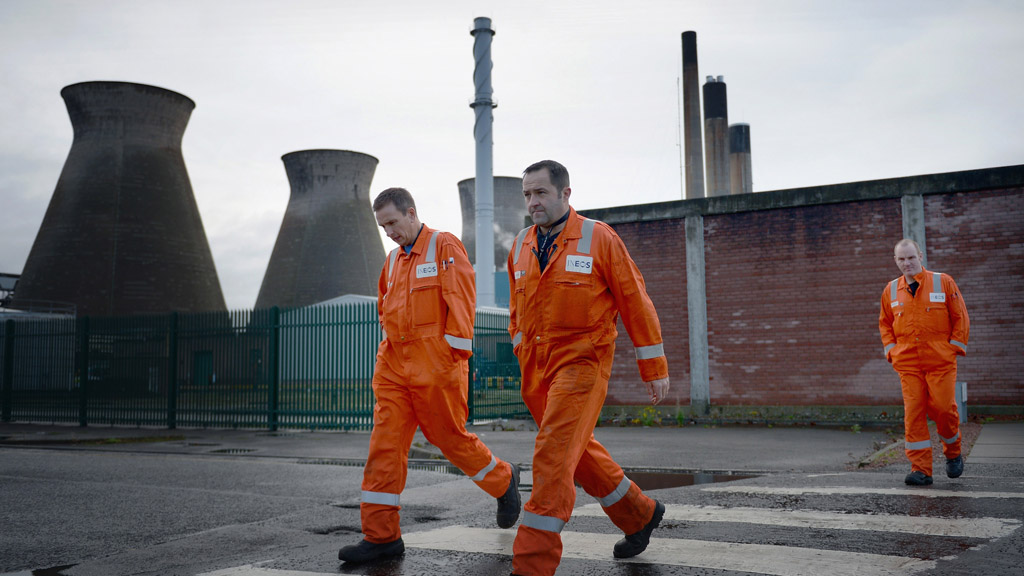Grangemouth union U-turn to save petrochemical plant
Leaders of the Unite union have decided to “embrace” a survival plan proposed by the owners of the massive Grangemouth plant. The management have yet to respond.

The about-turn by the union was announced following a meeting between its leader Len McCluskey and union shop stewards at the plant.
Mr McCluskey said the shop stewards had decided they had to embrace the survival plan, “warts and all”, in the wake of the closure decision. The company said on Wednesday that it had no alternative but to close the business after Unite members rejected the survival plan.
No response is expected from owners Ineos until after meetings later today with politicians including the Scottish Secretary Alistair Carmichael and representatives from Falkirk council and the local chamber of commerce.
The plant is on cold shut down and each day that goes by makes it harder to start back up again. Len McCluskey
Mr McCluskey had harsh words for the company’s tactics in the dispute, saying “it is not how we engage in modern day industrial relations”, and he emphasised the need to resolve the situation soon.
“This plant is on cold shut down and each day that goes by makes it harder to start back up again, which is why the stewards made the offer to the company – so that we can get people back to work,” he said.
The threatened closure would have meant the loss of 800 jobs at the petrochemical plant and some 2,000 more among contractors.
Too important to close
Politicians from all parties had expressed their concern at the prospect of closure.
Speaking to Channel 4 News, industry expert Paul Hodges of International eChem said “this plant is too important in an economic sense to the UK economy to close.” Mr Hodges said the knock-on effect of such a closure could result in a £5bn loss to the UK economy.
The company had proposed a £300m investment to upgrade the ageing petrochemical plant, which turns oil and gas into plastics for goods such as food packaging and car parts.
Should the management fail to agree on a deal with the unions, Mr Hodges expressed some pessimism about hopes expressed by politicians that a sale to a new owner would be possible: “in the economic climate we are in today, it’s hard to imagine there will be a queue of people wanting to buy”.
Across Europe low consumer demand means that petrochemical plants like Grangemouth are operating at 78 per cent capacity, whereas until 2010 operating rates of 90 per cent were usual.
Wrong sort of refinery?
Although the neighbouring refinery was reopened by Ineos on Wednesday, without the petrochemical plant its future too would be uncertain. One million tonnes of the refinery’s output goes into the petrochemical plant.
And however important the Grangemouth plant is to the UK economy, there is an underlying problem for the country’s refinery infrastructure.
A report by the Energy and Climate Change Committee quoted evidence that “the balance of fuels used in the UK has changed since the construction of the UK refineries, with consumption of petrol decreasing, and diesel increasing.”
Put simply, the UK is refining too much petrol and not enough jet fuel and diesel. That shortfall is being filled by imports from the Middle East, Russia, India and the USA.
This trend towards increased diesel use is expected to continue, but converting a petrol refinery to handle diesel is expensive, although Total is doing this at plants in France.
A report published by the UK Petroleum Industry Association (UKPIA) in May 2013 found that in order to remain competitive, UK refineries would have to invest between £1.5bn and £2.3bn over the next 20 years.
-
Latest news
-
US believes hostage deal and ceasefire ‘in best interests’ of Israel and Palestinians2m

-
Brazil battles nature as ‘largest ever’ floods submerge whole cities3m

-
SNP chooses new leader but is it time for an election in Scotland?2m

-
Proposed ceasefire a ‘good deal for everyone’, says Israeli hostage negotiator.5m

-
‘We’re afraid of a ground invasion coming imminently’, says Rafah refugee3m

-




